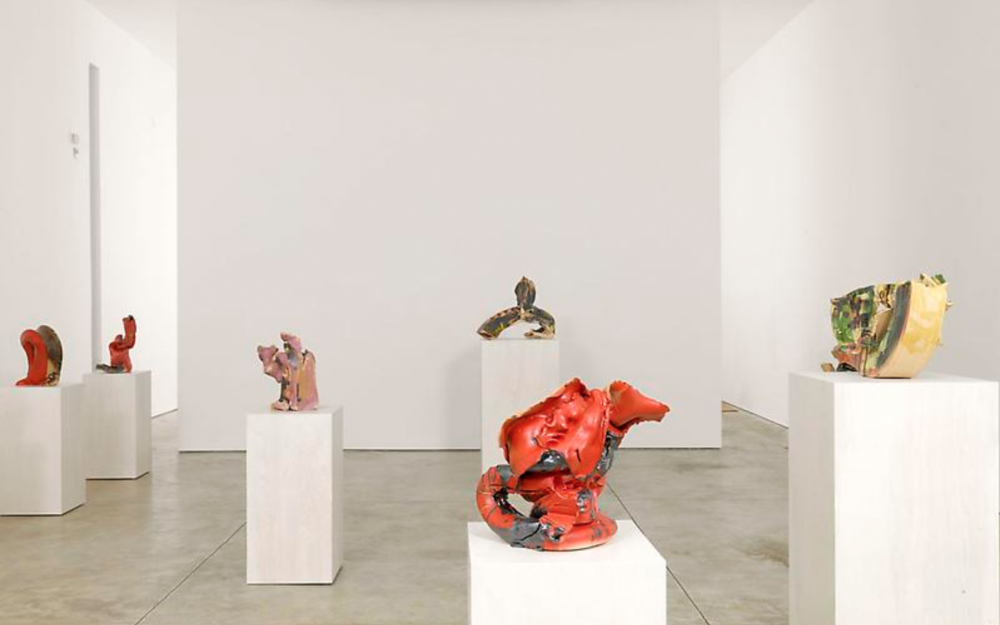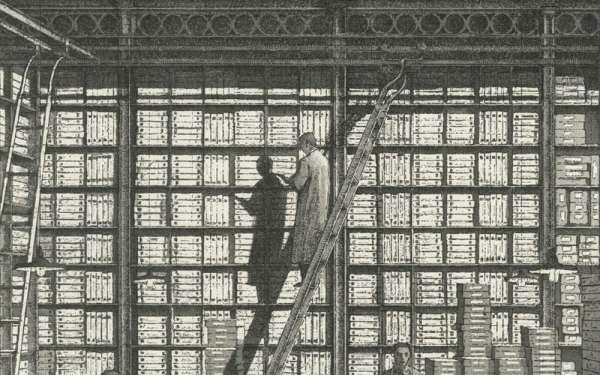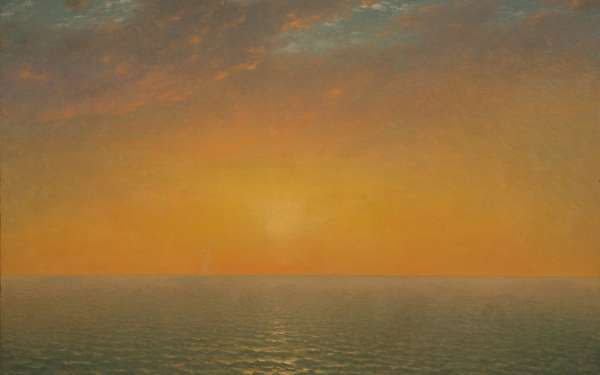Stop and Smell the Hibiscus: On Laziness, Art, and the Utopia Imagined by Adler Guerrier
Rob Goyanes examines Adler Guerrier’s work, which explores the benefits of not working.
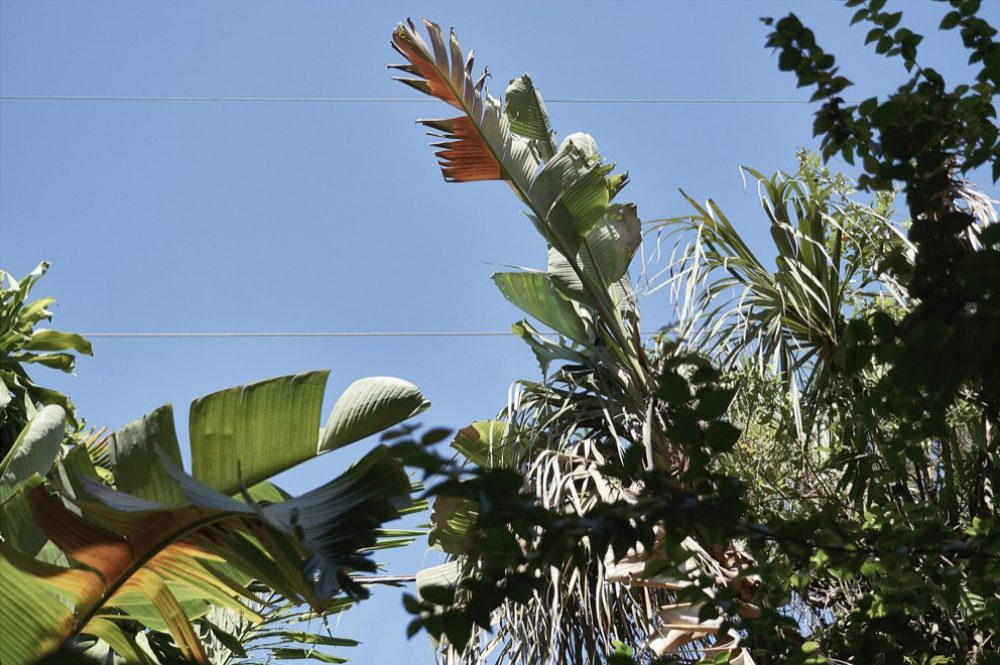
Adler Guerrier, Untitled (Enveloped in Newly Deployed Conditions), 2017. Archival pigment print. Courtesy the artist and David Castillo Gallery, Miami.
Calling someone lazy is an especially strong insult in a society where constant work is valued not just as a means to success, but as success in itself. Laziness, an unwillingness to work, is culturally distinct from other forms of not working. The rich financier works “smarter, not harder” by investing in the right places, having others do the menial tasks, and letting capitalism do the work. On the other hand, the poor retail clerk who refuses to take on more shifts—mind-numbing labor that would result in a barely perceptible increase in her paycheck—is deemed lazy.
On a hot day in August 2016, artist Domingo Castillo and curator Liz Shannon hosted a discussion about laziness. Predicated on the idea that laziness is important to the creative process, the talk at Locust Projects in Miami spurred significant attendance by local artists, all of whom seemed to have closely-held beliefs about the subject. It didn’t take long for debates to erupt. People started arguing before the concept of laziness was even properly fleshed out. I suggested that artists needed to embrace the idea of pure laziness—never mind output, forget about process. Adler Guerrier, a Miami-based artist in attendance, disagreed completely, and said that not working was essential to artmaking, but that laziness for its own sake should not be embraced. “This whole sort of moral framing of what laziness is, I didn’t like that at all,” Guerrier told me in a recent conversation.
This moment inspired a follow-up conversation about laziness and its relation to his work, particularly his recent exhibition at David Castillo Gallery in Miami titled “Deployed, Conditional, and Limited Utopia.” The show included photos such as Untitled (Enveloped in newly deployed conditions), 2017, a fuzzy image of a plant set against a serene sky, the white sun nearly washing out the frame. We pondered how the climate and landscape of Miami, real and figurative, pertains to concepts of laziness and utopia.
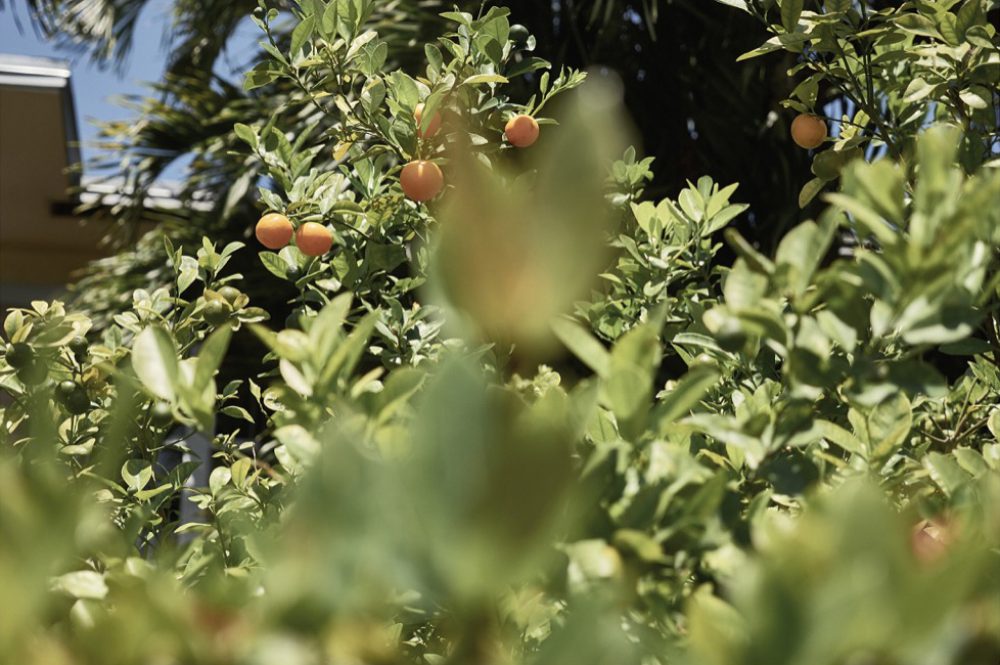
Adler Guerrier, Untitled (Enveloped in Newly Deployed Conditions), 2017. Archival pigment print. Courtesy the artist and David Castillo Gallery, Miami.
Laziness is different from the cluster of notions that float around not working—from idleness to relaxation to dormancy—in the sense that laziness is the most active state of not working. To be lazy is to not work when you should (or need to) be working. Time and space are critical to notions of laziness: A “well-deserved” vacation isn’t laziness, and you’re not lazy if your work-life is decentered and mobile, following you wherever you go.
Guerrier, born in Port-au-Prince and living in Miami since the age of 12, doesn’t necessarily value not working, but there is a certain idleness that his artwork requires and inspires. Traipsing through the city, the artist is a flâneur in the classic sense, one who walks a lot, calmly observing his surroundings, using these moments as muses. In his show at David Castillo, photographs of lush, semi-manicured lawns, tropical plants in soft focus, abstract shapes and swaths of pastels reflect the undulations in Guerrier’s work. The arresting images of palms and orange trees are free of work-traces: the artist was simply in the right place at the right time (though it took many moments to achieve these). Then there are works such as Untitled (Place marked with an impulse, livid peach), 2017, which combine the hazy, seemingly carefree photography with crisp, graphical imagery, clear representations of intentional work.
“This idea of laziness,” Guerrier says, “must be filtered toward something that is productive. A time spent doing one’s thing in order to make one’s self better has to be read as positive.” The conception of the lazy artist, perhaps a sort of sublimated jealousy, reminds us that certain bodies are inscribed with the need to work, depending on the prejudice of the person making the judgement. As Guerrier observes, “In a westernized, Protestant economy, idleness is frowned upon.” Across cultures and histories, not working was/is viewed as a threat.
“At an earlier moment, when we were an agrarian culture, where the town was only 100 people, it’s all hands on deck all the time,” Guerrier reflects. “Juju the poet, who’s 20 years old and just wants to sit there and write poetry, might hit like an insult. I think those are the interesting role plays that come from a larger communal and relational aspect of how the idler sits within a community. An idler cannot exist on an island all by himself. Unless of course it is utopia, the most perfect island.”
Artists’ work depends on the space to be idle, to dream. This is the positive foil to laziness, laziness that is a means to an end, rather than just an end. “An aspect of listlessness that I really like is a willingness or a strong claim to renegotiate the terms of work, of the morality that’s connected to work, and of course the imaginary, productive usage of recouped time,” Guerrier tells me. Utopia is then a place where we can be lazy and not worry about it, a place where we’re unburdened by labor, as well as the struggles against oppression.
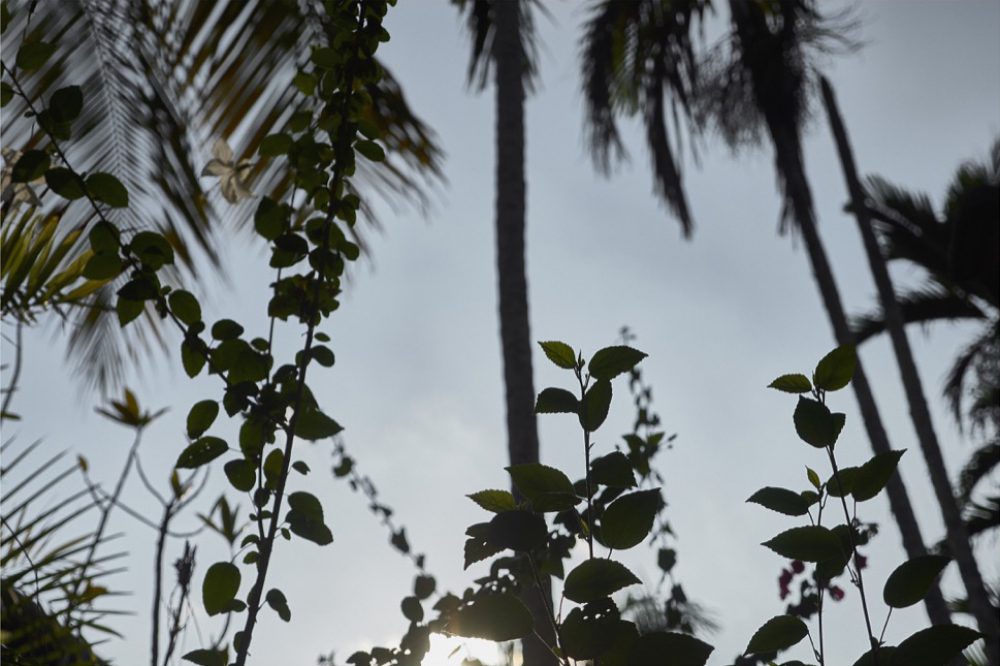
Adler Guerrier, Untitled (Enveloped in Newly Deployed Conditions), 2017. Archival pigment print. Courtesy the artist and David Castillo Gallery, Miami.
The concept of laziness is deeply connected to racism and other systems of prejudice. The idea of minorities “gaming the system” is pervasive in white supremacist and neo-fascist rhetoric, which asserts that lazy black, brown, and immigrant bodies are taking the opportunities of those who are working hard. When the poor and disempowered are critiqued as “lazy” members of society, it’s a reassertion of this inequality and blames the oppressed—surely, so the conservative line of thinking goes, if you do not have money or power, it’s because you didn’t work hard enough to get it. As Guerrier, a black man from Haiti, points out, “It would be harsh to call people lazy if the economy cannot support them.”
While studying at the New World School of the Arts, Guerrier spent a lot of time walking around downtown Miami, a dense topography of private property. This wandering continues to this day and functions as “a way of establishing a sort of a presence outside of the studio space,” he says, “where one can actually observe the world that one lives within, in order to make note of marks, of texture, of instances of irregularities on the landscape.” This is not merely an aesthetic exercise either. In works such as Untitled (blck longevity – utopia) i, 2017, Guerrier examines the history of landscape as it relates to conceptions of blackness.
Miami’s urban space is punctuated by tropical flora, a source of inspiration for Guerrier’s concept of limited utopia, a type of utopia that exists today, even if just for a moment in time. Something about the tropics inspires the collective fantasy of both utopia and laziness: Perceived as paradise, Miami is a place to lounge and party, a place for vacation. For those who live there, the hot weather and verdant terrain encourages a sort of languid persistence. This, however, is the inverse of the version of laziness that’s so morally detested. This is the beauty of listlessness, an acquaintance with life that’s devoid of constraints such as time, money, and mediation: “It becomes truly an observing exercise where we really try to see, maybe for the first time,” Guerrier says.
In a more utopian world, day-to-day lives would be unburdened with wage labor and the intense friction of human relations. With more of humanity’s problems alleviated, we’d be able to just chill more, without the moral condemnation of being lazy. In Miami and other tropical zones, there’s a heightened appreciation for the productive aspects of listlessness, the things to be gained from not working.
“We do not have a dormant season where things retract, and where we must go indoors and try and withstand the harshness of the elements and landscape, says Guerrier. “It seems the tropics continually encourage afternoon gazing at long sunsets, and smelling the roses and hibiscuses.”
Editor's Note
Adler Guerrier’s “Deployed, Conditional, and Limited Utopia” was on view September 28–November 18, 2017, at David Castillo Gallery (420 Lincoln Road, Suite 300) in Miami.

